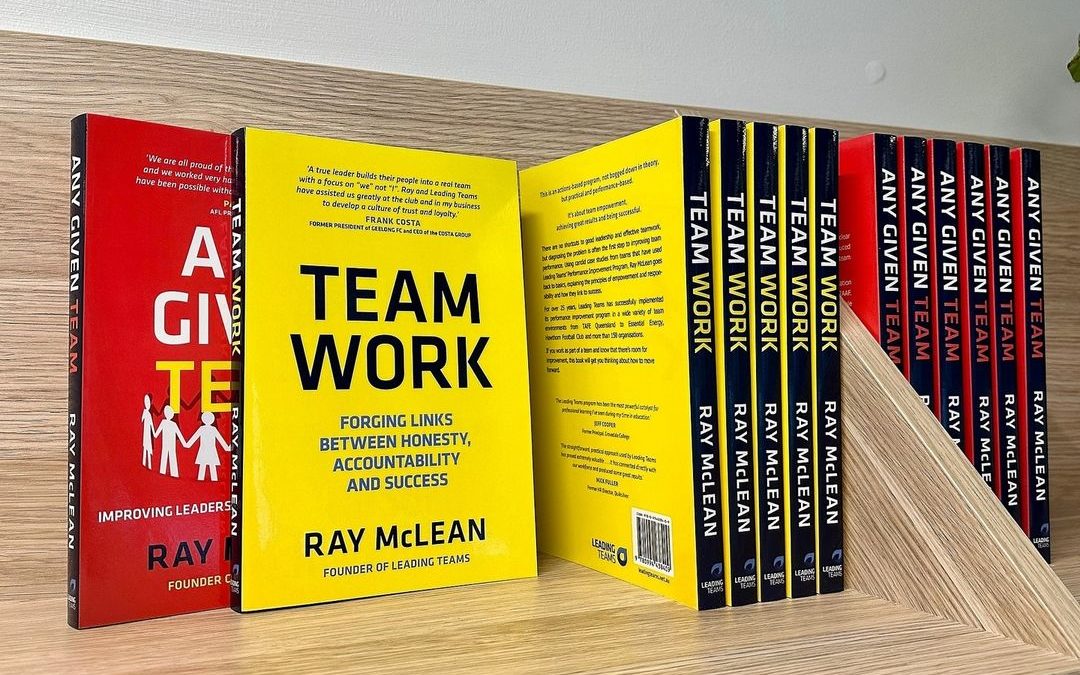It allows us to build relationships and show empathy with the team we’re working with by sharing our own experiences and helps people to learn through the messages in the story.
I have always been a reader but over the years have drifted in and out of summer-time reading to relax and switch my brain off and reading for my learning and leadership development. It was a client of mine recently who shared that he had shifted his habit of glancing at his phone before heading to bed and instead, reading 10 pages, that has inspired me to make it a nightly habit.
It was a few years ago when I wasn’t in great shape; not feeling like I was good enough in most areas of my life, that I took a bunch of books to read over summer and 1 changed my life. When I read Brené Brown’s “I Thought it Was Just Me (but it isn’t)”, it was like it was written especially for me. It helped me to re-shape my personal trademark and remind me what was important to me and the value I can add to others as a leader. I think it was a bit about reading this book at exactly the right time, but I love books that have this kind of impact.
We have collectively put together this list of books that have had a profound impact on us as leaders and team members.
They all have ties to the importance of relationships, purpose and conversations for individuals and teams.
Some might not have been intended to be leadership books but the author’s storytelling ability has made them too compelling not to share.
We hope you enjoy
These are in no particular order – all are excellent.
1. Peak: How great companies get their mojo from Maslow – Chip Conley
Recommended by Matthew Vandermeer
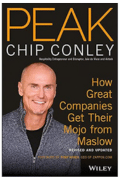 Hotelier-cum-elder Chip Conley’s first book talks about how the teachings of Abraham Maslow helped his hotel chain outperform all competitors in a highly contestable space. One of the most compelling ideas about how to engage your people that I have read.
Hotelier-cum-elder Chip Conley’s first book talks about how the teachings of Abraham Maslow helped his hotel chain outperform all competitors in a highly contestable space. One of the most compelling ideas about how to engage your people that I have read.
2. Practice Perfect – Lemov et al
Recommended by Gavin Mahoney
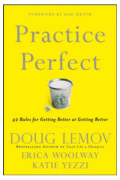 I love this book for its simplicity but high practicality for developing skill. Below are my key takeaways:
I love this book for its simplicity but high practicality for developing skill. Below are my key takeaways:
- Clearly define what your participants will be able to do at the end of the session
- Set the objective first and then match the activity to achieve the objective
- When teaching a technique or skill, practice the skill in isolation until the learner has mastered it
- Remember that a simple and small change, implemented right away, can be more effective than a complex rewiring of a skill
- Use a short hand or cues words to provide quick action points to the player
3. Tribes by Seth Godin
Recommended by Shelly Walsh
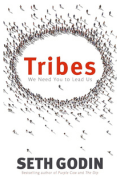 The modern thought leader on marketing principals and practices Seth crystalises what it is to gather momentum, engage your team to go on a journey and embrace a purpose. He taps into the human spirits need for connection and meaning. Fostering that need enables leaders to make real change.
The modern thought leader on marketing principals and practices Seth crystalises what it is to gather momentum, engage your team to go on a journey and embrace a purpose. He taps into the human spirits need for connection and meaning. Fostering that need enables leaders to make real change.
4. Start with Why by Simon Sinek
Recommended by Shelly Walsh
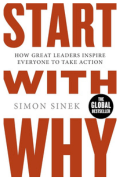
A oft quoted must read but with good reason. The quintessential text on why creating a meaningful purpose is essential for any leaders looking to truly engage their employees. The introductory text to Sinek’s “Golden Circle” TM model and why people don’t buy what you do they buy why you do it.
5. Think Again by Adam Grant
Recommended by Brendan Maher
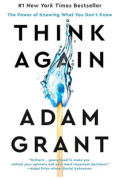 This is a great book that focuses the reader’s attention to the power of ‘knowing what we don’t know.’ (Similar to Johari Window thinking but different) A favourite quote/excerpt of mine from the book is, “If knowledge is power, knowing what we don’t know is wisdom…. Good judgement depends on having the skill – and the will – to open our minds.”
This is a great book that focuses the reader’s attention to the power of ‘knowing what we don’t know.’ (Similar to Johari Window thinking but different) A favourite quote/excerpt of mine from the book is, “If knowledge is power, knowing what we don’t know is wisdom…. Good judgement depends on having the skill – and the will – to open our minds.”
Grant elaborates on a modern phenomenon where many people are supremely ‘confident’ that they are right and have all of the answers, a mindset that comes at the expense of those who have genuine competence. Whilst I’m not too far into the book, what I have read has prompted me to think a great deal about my own leadership.
6. Any Given Team by Ray McLean
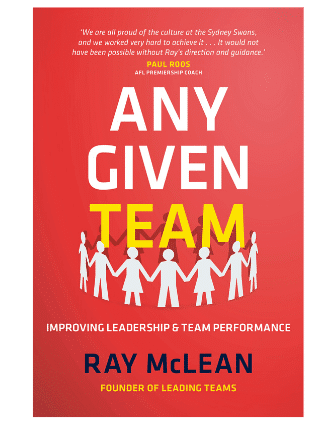 Yes, Ray McLean is the founder of Leading Teams but he is also an expert facilitator, who has spent most of his career thinking about how to improve team performance and why leaders need to invest in their team’s dynamics.
Yes, Ray McLean is the founder of Leading Teams but he is also an expert facilitator, who has spent most of his career thinking about how to improve team performance and why leaders need to invest in their team’s dynamics.
Any Given Team is the origin story of Leading Teams through Ray’s eyes as he established the link between improving performance and investing in team dynamics. As the title suggests these learnings are applicable to any group of people who call themselves a team.
7. Teamwork by Ray McLean
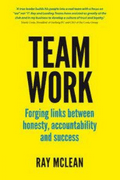 Ray’s second book is a collection of stories from our team and their clients. Stories of how clients have invested in their team’s dynamics, built relationships and established a common purpose. These stories are all completely different but they all have the similar thread of business improvement and resilience under pressure.
Ray’s second book is a collection of stories from our team and their clients. Stories of how clients have invested in their team’s dynamics, built relationships and established a common purpose. These stories are all completely different but they all have the similar thread of business improvement and resilience under pressure.
8. Culture Code by Daniel Coyle
Recommended by Aaron Rogers
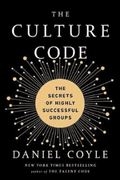 This book has great stories of the highs and lows of teams in many different industries from around the world and strongly links back to our high-performance model.
This book has great stories of the highs and lows of teams in many different industries from around the world and strongly links back to our high-performance model.
9. Man’s Search for Meaning by Viktor Frankl
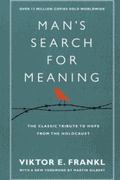 No book list for us at Leading Teams can be complete without including this book from Viktor Frankl. Whilst it is only a small book the message and lessons are immense, Frankl outlines how he used purpose and mental fortitude to survive against insurmountable odds.
No book list for us at Leading Teams can be complete without including this book from Viktor Frankl. Whilst it is only a small book the message and lessons are immense, Frankl outlines how he used purpose and mental fortitude to survive against insurmountable odds.
10. Too Soon Old, Too Late Smart by Gordon Livingston
Recommended by Daniel Healy
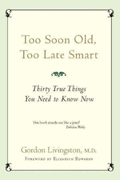 This was the first book our co-founder, Ray McLean ever recommended to me. Livingston provides a list of 30 truths for living that he has captured over his lifetime from his career working as a psychiatrist and his personal life.
This was the first book our co-founder, Ray McLean ever recommended to me. Livingston provides a list of 30 truths for living that he has captured over his lifetime from his career working as a psychiatrist and his personal life.
11. The Man Who Cured the Performance Review – Graham Winter
Recommended by Jake Bridges
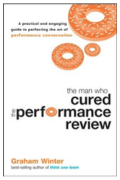 This is a compelling book and makes strong links to our High Performing Teams model around empowerment and creating a feedback culture that doesn’t rely on the mechanic of the performance review to drive sustainable high performance.
This is a compelling book and makes strong links to our High Performing Teams model around empowerment and creating a feedback culture that doesn’t rely on the mechanic of the performance review to drive sustainable high performance.
I use this almost every session I facilitate to encourage a feedback culture.
We must receive, review and respond to feedback instead of resisting, reacting and ultimately rejecting feedback
12. Belonging by Owen Eastwood
Recommended by Lucas Gamble
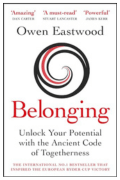 Speaks directly to the value of purpose and people being intrinsically connected (a sense of belonging) to why that team exists. It then looks at what people are prepared to do for the team when they feel like they belong. The power of storytelling, connection and the links to high performance across sport and business.
Speaks directly to the value of purpose and people being intrinsically connected (a sense of belonging) to why that team exists. It then looks at what people are prepared to do for the team when they feel like they belong. The power of storytelling, connection and the links to high performance across sport and business.
13. Good to Great by Jim Collins
Recommended by Andy Paterson
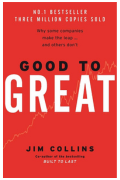 This book reveals what Jim Collins calls, Level 5 Leaders. There are leaders and then there are those who are in for the betterment of the team, not for their own gains. A quote that stands out is from a level 5 Leader who states, “Your key asset is not people, but it’s the right people”. The author also refers to this as ‘getting the right people on the bus”. Simple enough but can you stick to this, and more importantly, when the pressure is on to deliver? An insightful read which clearly paints a picture of the type of Leader the world needs more of.
This book reveals what Jim Collins calls, Level 5 Leaders. There are leaders and then there are those who are in for the betterment of the team, not for their own gains. A quote that stands out is from a level 5 Leader who states, “Your key asset is not people, but it’s the right people”. The author also refers to this as ‘getting the right people on the bus”. Simple enough but can you stick to this, and more importantly, when the pressure is on to deliver? An insightful read which clearly paints a picture of the type of Leader the world needs more of.
14. Legacy by James Kerr
Recommended by James Macmillan
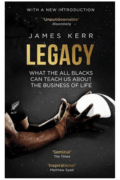 The All Blacks rugby team teaching leaders about the business of life. Sharing their mantra of ‘Sweep the sheds’ and how that impact the behaviours of the players in their team and ultimately their performance.
The All Blacks rugby team teaching leaders about the business of life. Sharing their mantra of ‘Sweep the sheds’ and how that impact the behaviours of the players in their team and ultimately their performance.
15. Multipliers by Liz Wiseman
Recommended by Kurt Wrigley
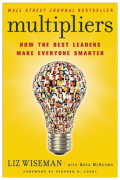 Multipliers is really a how to become a HP Leader and how the best leaders inspire, support and improve others in the teams. Liz looks at some different ways you can act/behave/react to situations that will multiply your staff’s willingness & ability. On the flip side it contrasts how your behaviour as a leader can diminish or be a barrier to others’ results, intelligence and attitude. It also provides some practical hacks on how to become a multiplier and spread a multiplier culture in your organisation.
Multipliers is really a how to become a HP Leader and how the best leaders inspire, support and improve others in the teams. Liz looks at some different ways you can act/behave/react to situations that will multiply your staff’s willingness & ability. On the flip side it contrasts how your behaviour as a leader can diminish or be a barrier to others’ results, intelligence and attitude. It also provides some practical hacks on how to become a multiplier and spread a multiplier culture in your organisation.
16. Dare to Lead by Brené Brown
Recommended by Andy Paterson
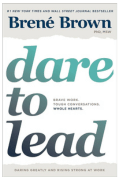 A work acquaintance recently referred to a leader he admires as being ‘a modern leader’. In my view Brené Brown’s book ‘Dare to Lead’ encapsulates this. Always a fan of Brené Brown’s view of the world, this book taps into a Leaders need to be brave and embrace being vulnerable. The book focuses on the significance of relationships in the work environment, not on, what we call at Leading Teams, the Mechanics; and a leader’s role in demonstrating trust, resilience, values and vulnerability. Brené’s conversational tone makes this an enjoyable light yet very insightful read.
A work acquaintance recently referred to a leader he admires as being ‘a modern leader’. In my view Brené Brown’s book ‘Dare to Lead’ encapsulates this. Always a fan of Brené Brown’s view of the world, this book taps into a Leaders need to be brave and embrace being vulnerable. The book focuses on the significance of relationships in the work environment, not on, what we call at Leading Teams, the Mechanics; and a leader’s role in demonstrating trust, resilience, values and vulnerability. Brené’s conversational tone makes this an enjoyable light yet very insightful read.
17. 7 Habits of Highly Effective People by Stephen Covey
Recommended by Kurt Wrigley
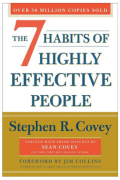 This book is a classic in leadership, it is a comprehensive look at how to build trust, taking responsibility and hold the mirror up to yourself first. It links to our work at Leading Teams by looking at individuals character and competence, circle of influence and concern and personal brand.
This book is a classic in leadership, it is a comprehensive look at how to build trust, taking responsibility and hold the mirror up to yourself first. It links to our work at Leading Teams by looking at individuals character and competence, circle of influence and concern and personal brand.
18. Quiet by Susan Cain
Recommended by Steve Lacy
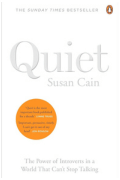 This book explores being an introvert in an extrovert world.
This book explores being an introvert in an extrovert world.
It’s easy to understand as everyone will be able to relate to everything directly or indirectly.
I feel that everyone must know what’s in this book irrespective of whether you are an introvert or not. If you are not an introvert but your teammate, colleague, children are quiet, then this is a book to help you better understand, connect & perform together.
19. The Power of Moments by Dan Heath
Recommended by Matthew Vandermeer
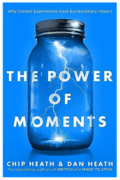 A book that unpicks the ingredients of what makes moments memorable and helps you think about how you might use those ingredients to create compelling moments in your life. The story about how John Deere inducts new teammates is awesome.
A book that unpicks the ingredients of what makes moments memorable and helps you think about how you might use those ingredients to create compelling moments in your life. The story about how John Deere inducts new teammates is awesome.
20. The Five Disfunctions of a Team by Patrick Lencioni
Recommended by Kurt Wrigley
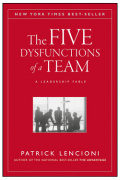 I love how this is written as a fable. It provides a step by step to how a new leader can calmly assess a team and address issues to become high performing via the dynamics path.
I love how this is written as a fable. It provides a step by step to how a new leader can calmly assess a team and address issues to become high performing via the dynamics path.
Martine joined Leading Teams in 2008 after an 11 year teaching career. Martine is a Facilitator/Partner based in Melbourne.
Learn more about Martine.

